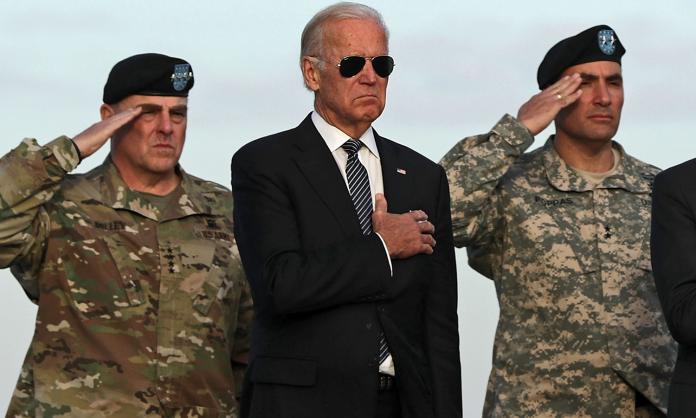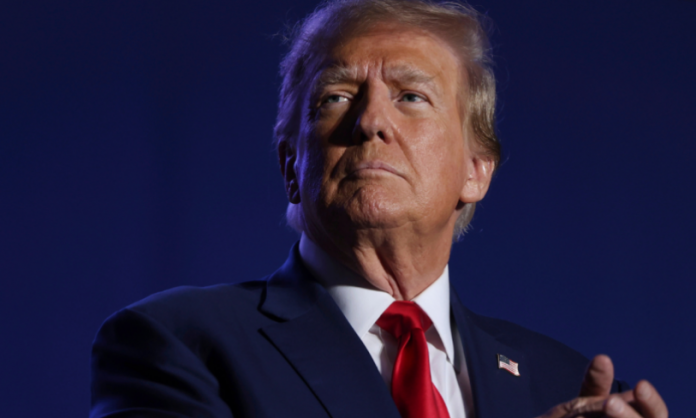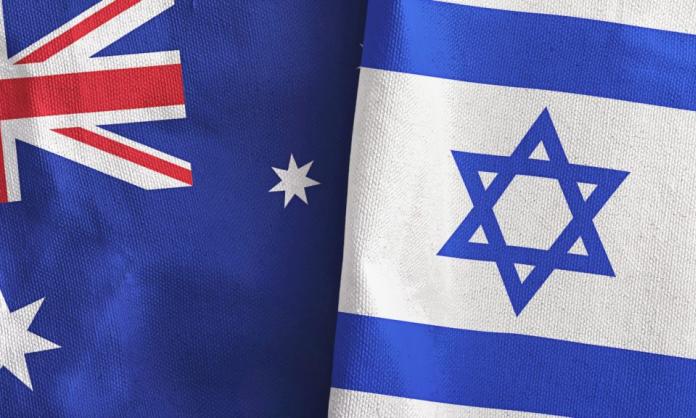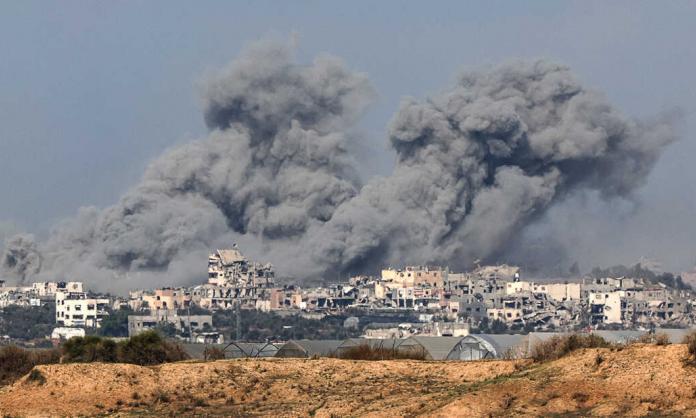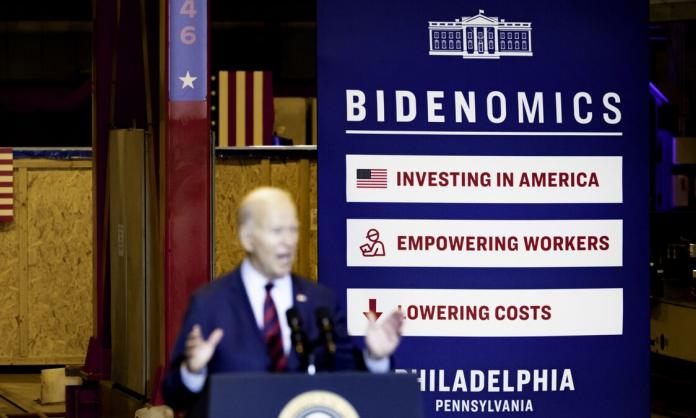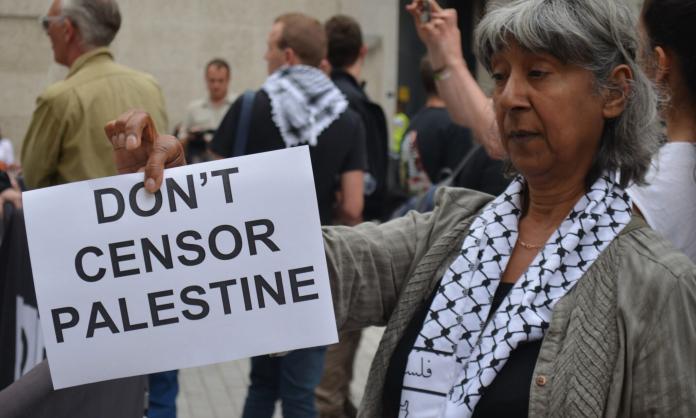The administration of US President Joe Biden will spend more than $750 billion on the US military next year, about 40 percent of the global total and more than the next largest ten countries’ military budgets combined.
Biden is continuing the military expansion started by Donald Trump, who increased spending each year he was in office. The 2022 defence budget has asked Congress for a further funding boost, claiming that “the United States military faces substantial challenges, emanating from countries like China and Russia”.
Biden argues that strengthening the US military is necessary to defend democracy against authoritarianism. But the US is the most aggressive and violent global power ever known. In the last twenty years alone, US bombs and soldiers have killed hundreds of thousands of people in Iraq and Afghanistan—both wars being justified on false pretences.
Of particular concern is $28 billion in funding for the “nuclear modernisation” program, including for new weapons. The Pentagon warns us about the danger of nuclear arsenals being built in Iran and North Korea. But according to the International Campaign Against Nuclear Weapons, the US spends four times more on its own warheads than the next biggest nuclear power, Russia.
And the United States is the only country to have used nuclear weapons in an act of war. More than 100,000 people died when bombs were dropped on the Japanese cities of Hiroshima and Nagasaki in 1945. In the aftermath, another 100,000 died of radiation poisoning. Many who survived suffered from leukaemia, cancer and other terrible illnesses in the decades that followed. That the US is now expanding its nuclear arsenal is a terrifying prospect.
US elites are presenting China as the new aggressor in global politics. Beijing should certainly be condemned for its tightening grip on autonomous regions such as Hong Kong and Xinjiang. But China’s reach doesn’t compare to the expansive nature of US imperialism, which operates nearly 800 military bases in more than 70 countries. By contrast, Britain, France and Russia have about 30 foreign bases combined. China? Just one: a People’s Liberation Army support base in Djibouti.
The anti-China rhetoric emanating from the US is couched in terms of maintaining global peace, but the US has done more to undermine the safety and security of the global population than any other nation. The US and its allies have dropped an average of 46 bombs per day on other countries since 2001, according to a recent estimate by anti-war group CODEPINK.
“Between 1947 and 1989, the United States tried to change other nations’ governments 72 times”, Lindsey O’Rourke, an assistant professor of international politics at Boston College, noted in a 2016 Washington Post article. The US military and the Central Intelligence Agency have attempted to assassinate more than 50 foreign leaders since the end of World War Two, most recently succeeding with the assassination of top Iranian General Qasem Soleimani in January 2020. This was the equivalent of Iran launching a drone strike against the US secretary of defense or the director of the CIA.
Now the US government is expanding military power across the Indo-Pacific region, encircling China. Thirty-six bases already host more than 80,000 American soldiers across Japan and South Korea.
Western leaders denounced Beijing earlier in the year when a fleet of Chinese military aircraft flew across the Taiwan Strait. But just last year, a US Air Force bomber flew halfway across the world to conduct an exercise in the South China Sea on US Independence Day.
“Back home we would celebrate the Fourth by launching fireworks”, Yeoman 2nd Class Chareese Knox, who took part in the exercise, was quoted as saying in the Maritime Executive. “But nothing celebrates freedom like launching fighter jets from the middle of the ocean at night.”
American warships frequently sail through the South China Sea in a show of force against Beijing’s territorial claims. But imagine the response from the United States if Chinese Navy warships regularly cruised off the coast of California.
Australia has positioned itself as a key US ally in the Pacific. The American military has had a presence in Western Australia and the Northern Territory since the 1960s, which has expanded in recent years. In 2011, Barack Obama and Julia Gillard announced a new military partnership to station 2,500 Marines in training barracks near Darwin as part of the US “pivot to Asia”.
Prime Minister Scott Morrison recently announced plans to spend $747 million on upgrading military bases and expanding joint exercises with the US, and the Australian reported that the federal government is in talks with Washington to stockpile more defence equipment and munitions at bases in the Northern Territory.
Signs are now pointing in the direction of a new era of imperialist rivalry. President Biden is attempting to rehabilitate old international alliances to form a united front against China. His talk of global partnerships and friendships between democracies really means building a coalition capable of crushing its rivals.




